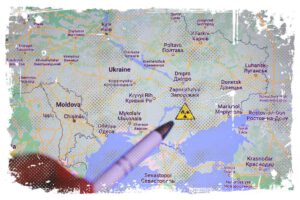Afghanistan and Iraq missions have been the most challenging for the Polish Army since World War II. It was a hard task, with many obstacles such as geography, climate, and culture. Our soldiers have proven to be victorious in this difficult time, they showed their willingness and readiness to serve their country. This is what the Polish Minister of National Defense said about this mission.

The Polish army, or so called Polish Military Contingent, has been a part of three operations in Afghanistan since 2002- Enduring Freedom (2002-2007), International Security Assistance Force-ISAF (2003-2014), and Resolute Support (2015-2021). At its peak, over 2,500 Polish soldiers were serving in Afghanistan, and a total of more than 33,000 of our soldiers and personnel took part in the operations over the years. On June 30, 2021, the last Polish troops were withdrawn from Afghanistan.
Task of the Polish Army in Afghanistan
Polish soldiers made significant contributions to the development of Afghanistan. They established efficient army units, trained thousands of police officers, and even helped to create an elite Afghan anti-terrorist unit. Their efforts also resulted in the completion of many important infrastructure projects, including the construction of roads, power grids, schools, and hospitals.
Stabilization Mission
As the situation in Afghanistan changed, the mission of the Polish army changed from a security-based one to a stabilization and training mission. Their initial tasks included protecting key facilities such as the Kabul airport and preparing and securing the area for the operations of international forces. Engineering and logistical work included the construction of infrastructure (bridges and roads) and particularly dangerous demining of the area, as well as searching for improvised explosive devices (IEDs).
↳ PRO TIP: Do you like traveling? Then before you buy any ticket or book an attraction, check if it's available in this worldwide Viator Database. You may save a lot of money and time. No need to thank me :)
With the new focus on stabilization and training, the Polish soldiers helped the Afghans in a range of ways. These included such things as:
- preparing and manning key Afghan police stations
- training and preparing local administrations (assisting in such training)
- fighting corruption
- ensuring the local communities are safe.
Goods Distribution
Soldiers from Poland also played a crucial role in distributing aid to the local population, providing hundreds of tons of materials such as medicines, food, clothing, school supplies for children, and basic agricultural tools. In the final phase, we shifted towards preparing and empowering the Afghans to conduct fully independent activities at the highest levels (ministries). The activities were advisory and assistance-oriented.
What Poland Gained From This Mission
“The mission in Afghanistan put the Polish Army to the test on the battlefield. In terms of benefits, the experience gained, improved skills, and the ability to test equipment in real-war conditions are all worth mentioning. The mission in Afghanistan provided the Polish Army with an opportunity to gain new knowledge and develop professional skills. Furthermore, it helped in the development of combat readiness, which is critical for security,” said the head of the Ministry of Defense.
The mission in Afghanistan was not only a test for the Polish Army but also for the cooperation among the allies. It has had a great impact on the development of a strong position for the Polish Army on the international stage. As I read in the interview, the head of the Ministry of Defense says that “it has proven our credibility. We have shown that we are united with our NATO allies.”
This was the longest and most demanding overseas operation for Polish soldiers, lasting almost 20 years. It brought numerous benefits to the entire army. The most important was the experience gained. There is no substitute for the real-life battlefield and the impact of the enemy.
The experience of Polish soldiers while serving in challenging conditions influenced the improvement of training programs, the preparation of soldiers and their equipment, and changes in army structures. It also accelerated and intensified the modernization process, including the use of Rosomak transporters and other vehicles. Additionally, it was an opportunity to develop cooperation capabilities with allied armies such as the US, and soldiers from other Alliance member states.
Why Did the US Launch a Military Operation in Afghanistan in 2001?
On September 11, 2001, the terrorist attacks took place at the World Trade Center and the Pentagon, where almost 3,000 people were killed. The two towers of the World Trade Center in New York were completely destroyed. The attacks were carried out by Al-Qaeda, a terrorist group led by Osama bin Laden.
At the time, bin Laden was hiding in Afghanistan, which was under the control of the radical Taliban. In response, President George Bush issued an ultimatum to the Taliban-led government of Afghanistan, but it was not met.
How Many Poles Died During The War in Afghanistan?
During the 20-year military mission in Afghanistan, 44 Polish soldiers lost their lives while serving. In comparison, 2301 soldiers from the US forces were killed. At its peak, the Polish contingent had around 2,600 soldiers in Afganistan.
According to figures from Brown University, more than 64,000 military personnel have died in the military intervention since October 2001. The number of civilians killed or wounded, as reported by the United Nations Assistance Mission in Afghanistan (UNAMA), is more than 110,000.
The Cost of the Polish Mission in Afghanistan
The costs of the Polish military mission in Afghanistan have been significant. During the implementation of Operation Enduring Freedom from 2002 to 2006, the expenses for the Ministry of Defense were PLN 108 million. The ISAF mission from 2007 to 2014 cost an additional PLN 6 billion. From 2015 to June 30, 2021, the expenses for the army operation were PLN 387 million.
However, it’s important to note that this is not the final cost announced by Ministry of Defence. The total known amount spent on the Polish mission in Afghanistan is just under PLN 6.5 billion.
Could Poland Not Have Taken Part in This Mission?
Poland’s participation in the mission in Afghanistan was not a choice but rather an obligation as a member of NATO. After the terrorist attacks on September 11, an international coalition was formed to take action against the terrorist group responsible for the attacks.
The coalition was based on Article 5 of the Washington Treaty, which speaks of common collective defense. 14 out of the 19 Alliance countries declared their participation in the mission, and as a new member of NATO, Poland had to take part in fulfilling the alliance’s responsibilities.
Bibliography
- https://www.polska-zbrojna.pl/home/articleshow/35090?t=Ta-misja-miala-sens
- https://dzieje.pl/wiadomosci/mon-koniec-polskiej-misji-w-afganistanie
- https://www.wojsko-polskie.pl/articles/tym-zyjemy-v/2021-06-25h-koniec-polskiej-misji-w-afganistanie/




